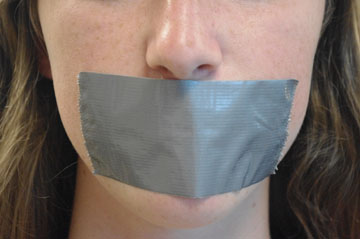
Web News Editor & Web Features Editor
Feeling angry, Shapiro recorded a video on a friend’s Facebook wall manifesting her frustration. Considered “a joke in [her opinion],” Shapiro would still later describe the video as “threatening and angry.” However, she forgot the video soon after she recorded it and went on with her life.
Three months after that day, Shapiro was called into the police station. She was asked to watch the Facebook video and recalled that “watching it with my parents was horrifying.”
She was informed that someone who had seen it on Facebook reported the video to the authorities, and that the content had been deemed threatening.
Although Shapiro was off-campus when she recorded the video, the school, according to Frank LoMonte, director of Student Press Law Center, can lawfully receive information from an informant such as a forwarded message or tip, and punish the student if any school rules are being broken.
The general umbrella that these rules fall under is “anything that in anyway interferes with the ability to get a free education or the ability to function in school” obligates the administration under the law “to investigate,” Principal John Dodig said.
Though Shapiro said she was joking with regards to the threats made in the video, “anything that even gives a hint about violence against school personnel or other students is very hard to defend,” LoMonte said.
Shapiro agrees that she was at fault in this situation: “There are not a lot of school rules, threatening to kill someone cannot be done,” she said.
For this reason, Shapiro was given a two day in-school suspension.
“I definitely learned my lesson—if you put it out there it can never be taken back.” Shapiro said. “I regret it.”
In an attempt to teach others what she has learned, Shapiro has advised friends to take down certain images or posts on Facebook, telling them it is “live proof,”and could result in punishment.
However, this does not mean students cannot enjoy their freedom of speech.
Almost four decades ago the Tinker v. Des Moines Independent School District case determined that students do not “shed their constitutional rights to freedom of expression at the schoolhouse gate.”
Yet it is clear that in this day and age, a student should be careful that what is said on the Internet is neither threatening nor libelous, because as Shapiro is well aware, “you will not get back” anything put on the Internet.
While Shapiro had forgotten the two minutes of her time she had spent recording the video, it was later clear that the Internet never forgets.
It is also clear that behaving in unlawful ways off campus does not mean a student will not face a school related punishment.
Any pictures of students behaving in unlawful ways that are posted to their public Facebook profiles gives the school the ability to punish them, specifically by banning them from extracurricular activity based on the grounds of the Code of Conduct.
On April 25, the Supreme Court determined the ruling of a similar case, five years since it was first brought to court. It all began when Avery Doninger, graduate of Lewis S. Mills High School in Burlington, Conn., showed her disapproval of a principal by writing on her Livejournal blog and calling her principal a “douche bag” in a post.
The school administrators became aware of it and banned Doninger from running for Senior Class Secretary on May 7, 2007.
Doninger lodged a complaint that, according to the U.S. Court of Appeals for the Second Circuit, asked the court “to void the election for student class secretary and require a new election in which appellant could run.”
Doninger felt her Connecticut free speech laws, her constitutional right to free speech, and her equal protection under the Civil Rights Act had been violated.
However, the court determined that Doninger’s blog post was “potentially disruptive to student government functions,” and therefore “Doninger was not free to engage in such behavior while serving as a class representative–a representative charged with working with these very same officials to carry out her responsibilities,” wrote judge Debra Ann Livingston.
Although the Court believes that Doninger should be removed from her student assembly position, LoMonte disagrees: “Almost no legal expert that will tell you the Avery Doninger case is right, it is just very clearly wrong. The court just got it wrong.”












































